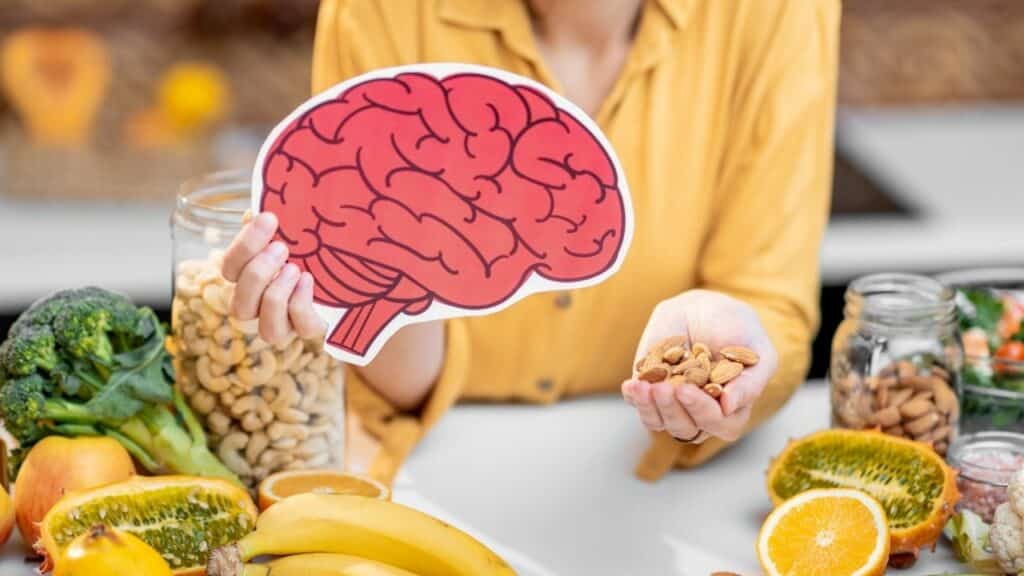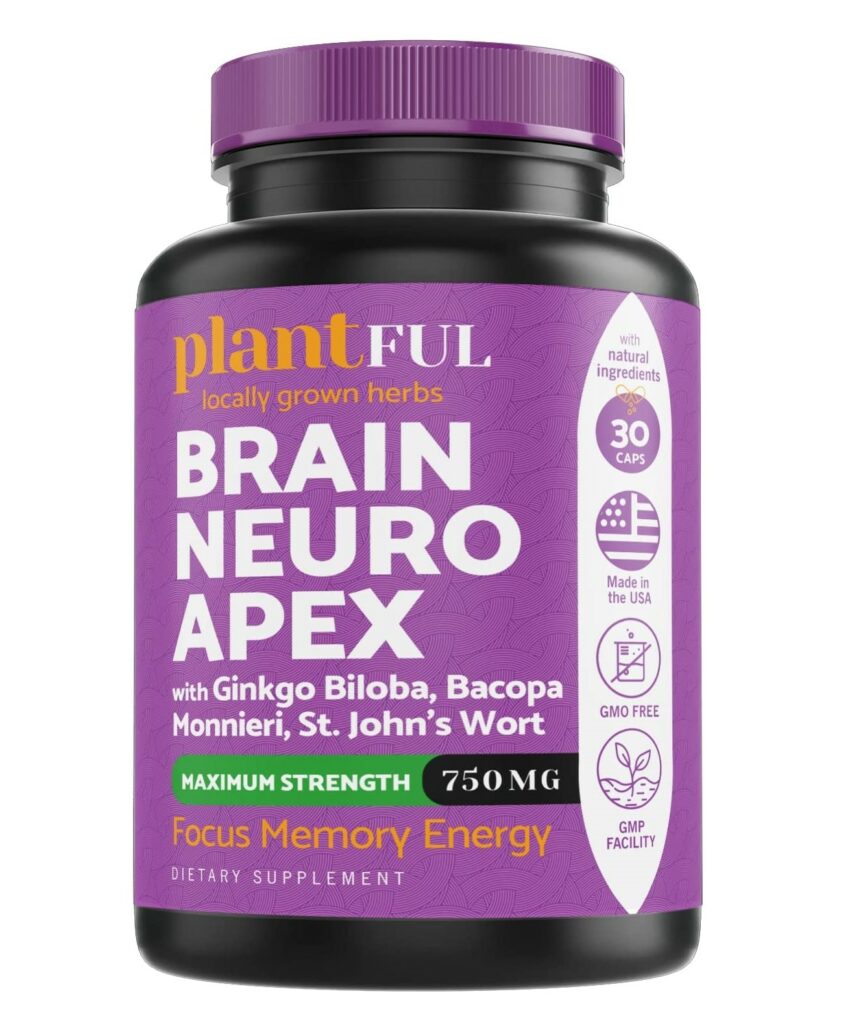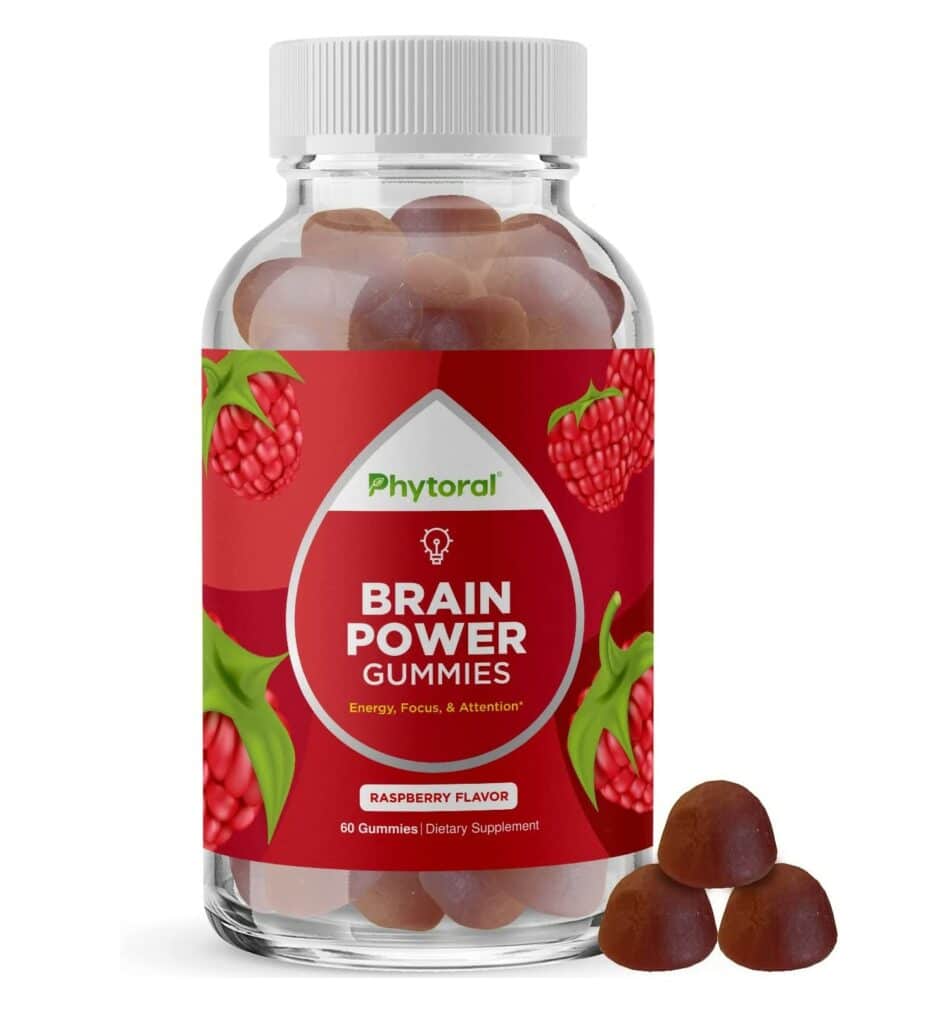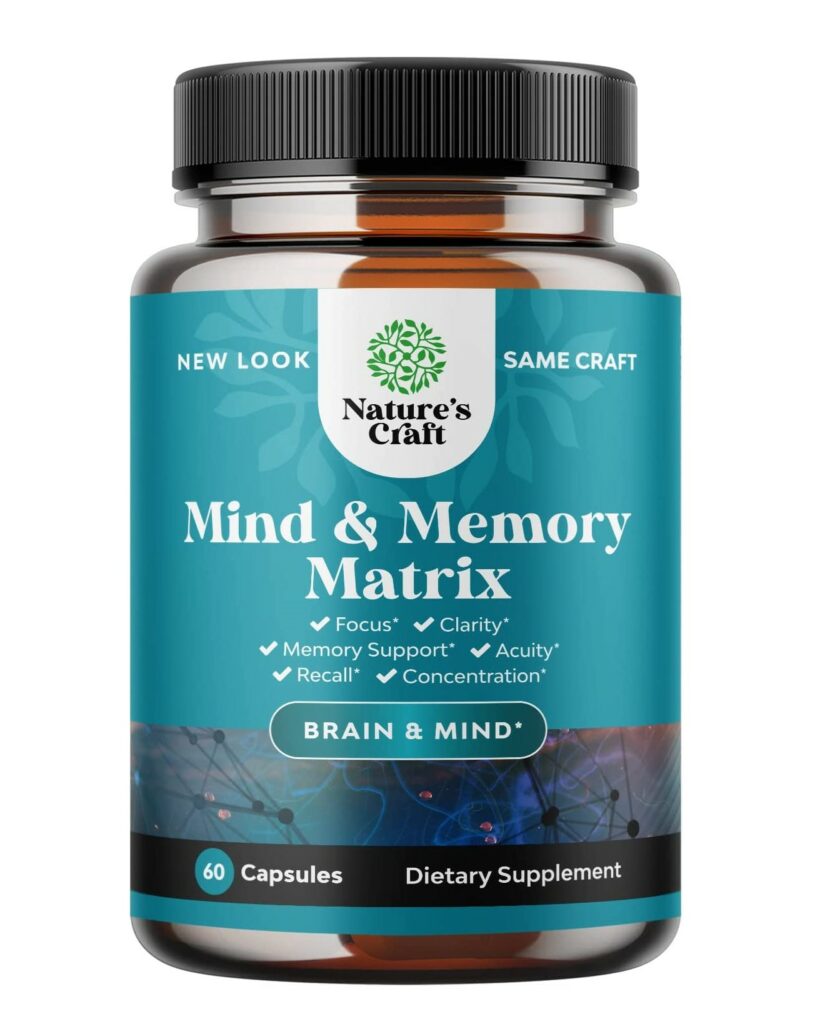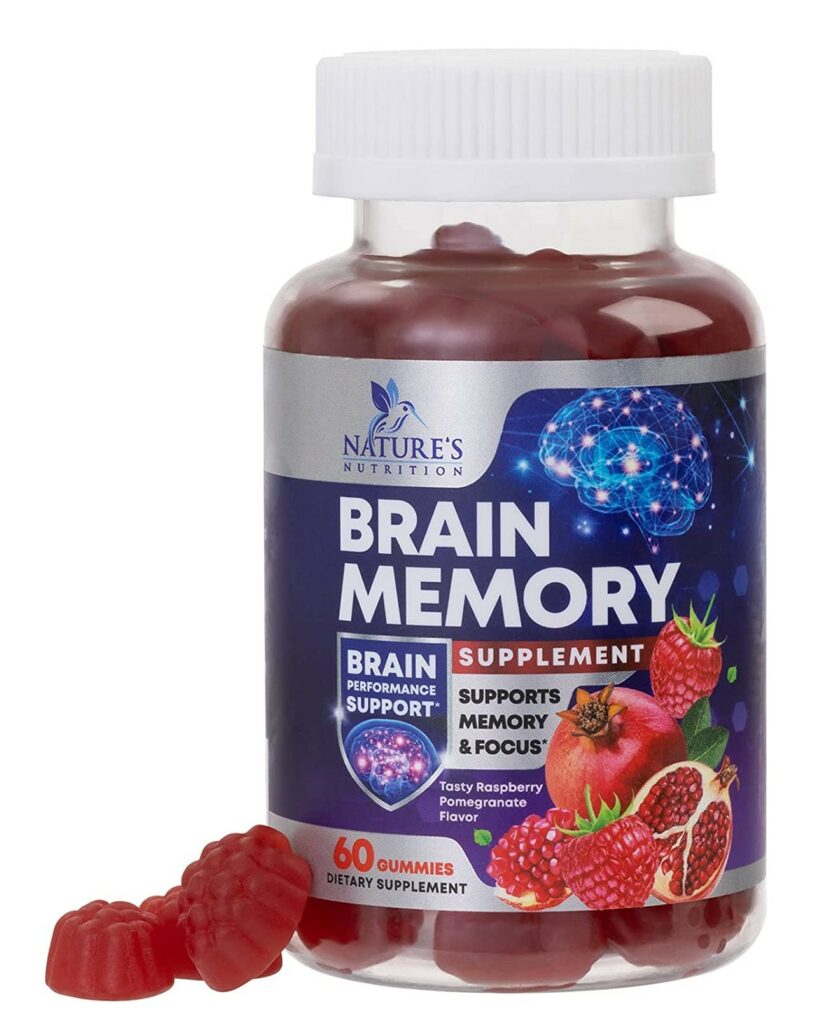Certain vitamins, herbal extracts, and fatty acids have been said to slow or prevent memory loss and improve your cognitive power.
These brain vitamins help support your brain function and improve your cognitive power by addressing nutritional imbalances in your brain.
We’ve talked about nootropics and brain-boosting supplements before, but can a humble vitamin improve your brain function, and if so, what are the best brain vitamins for adults?
In addition to essential vitamins and minerals to stay healthy, many supplements have been shown to improve brain function and protect against age-related mental decline.
Although most of these supplements don’t offer the dramatic health benefits you may expect from something called “brain boosters”, they are a great way to support your brain health.
Vitamins and essential amino acids like vitamin C and Omega-3 fatty acids are vital for a healthy brain, and taking them in supplements can help improve your brain health and cognitive function.
While much of the evidence for these supplements isn’t very strong, many of the best brain vitamins for adults can help support overall health and brain function, even in generally healthy people.
Table of Contents
Do Supplements for Brain Really Work?
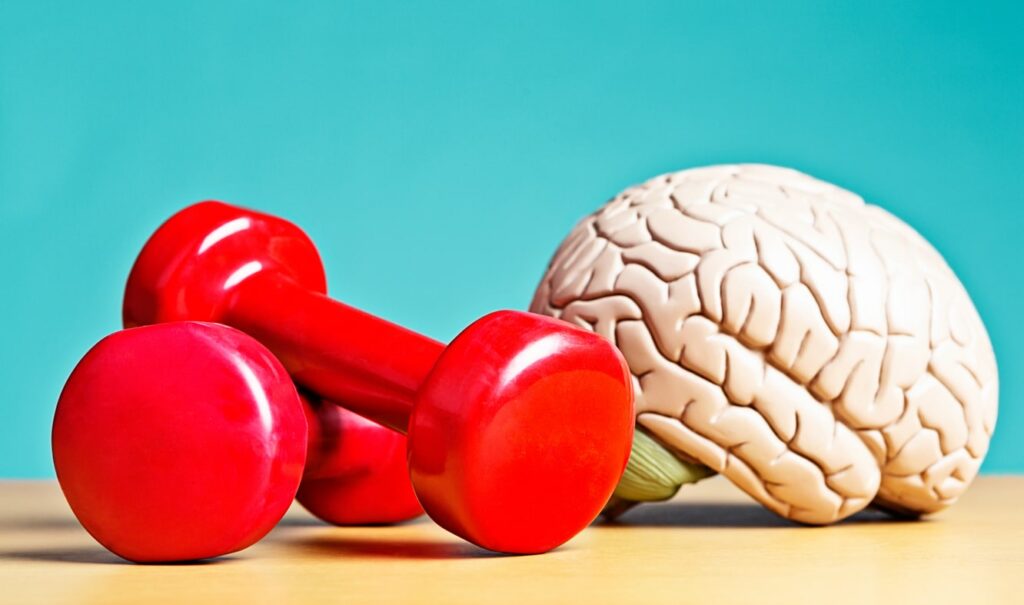
In short, the question of whether supplements for brain health work as advertised lacks a clear answer:
There is very little evidence from randomized clinical trials – widely considered the gold standard of research – showing that these supplements improve cognitive function or prevent age-related cognitive decline.
But this doesn’t mean that supplements for brain health aren’t beneficial, as they contain ingredients linked to brain health, including many that have proven benefits when eaten as part of a balanced diet.
So, while the best brain vitamins for adults may not have clear studies backing them up, they contain ingredients proven to support brain health and/or nootropics that may give you the ‘brain boost’ you need.
RELATED: If you’re looking for a brain boost, try these nootropic supplements, which help improve your brain function and cognitive power.
4 Best Brain Vitamins for Adults
Although most self-care recommendations center on physical health and psychological well-being, taking care of your brain is a vital part of improving and maintaining your quality of life as you grow older.
To help you support your brain health without the need to micromanage your diet and exercise routine, here are our recommendations for the best brain vitamins for adults:
1. Plantful Brain Neuro Apex
This plant-based blend of 8 full spectrum amino acids and adaptogenic herbs such as Ginkgo Biloba and L-Glutamine is designed to boost your mental energy, focus, and memory.
While they do not contribute to your nutritional needs, the nootropic herbs have powerful benefits for your mental performance and can enhance your memory and focus, making them a great way to stay on top of your game.
2. Phytoral Vegan Brain Power Gummies
The main ingredient in these tasty vegan gummies is vitamin B12 (or cobalamin), which is essential for healthy brain function and tends to decline with age, meaning B12 supplements may help prevent age-related cognitive decline.
However, since these gummies contain 1.7g of sugar in each serving and lack any other vitamins, minerals, or nootropic ingredients, they may not be the best brain vitamins for adults who want an all-rounder supplement.
RELATED: Learn about B vitamins’ health benefits and food sources in our article on Vitamin B12 and B-complex vitamins.
3. Nature’s Craft Mind & Memory Matrix
Nature’s Craft’s supplements contain a wide range of vitamins, minerals, and herbal extracts designed to support brain health and improve your cognitive power.
With a whopping 40 active ingredients, these supplements have pretty much everything you could ask from a brain health supplement in an easy-to-swallow capsule.
4. Nature’s Nutrition Brain Memory
If you like your supplements in gummy form, these raspberry and pomegranate gummies are vegan, non-GMO, and caffeine-free, making them a tasty way to boost your brain health on a plant-based diet.
Furthermore, these supplements contain some of the best brain vitamins for adults – B vitamins, folate, and coffee bean extract for all the nootropic effects of coffee with no caffeine crashes.
Can Supplements Help Your Brain?
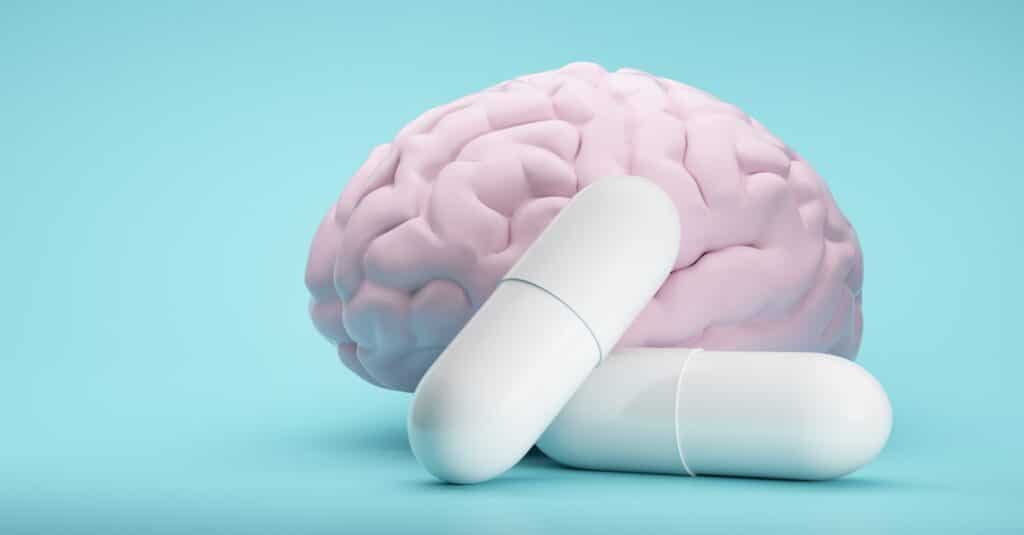
Your brain is a complex organ that requires various nutrients and biological processes just to get up in the mornings, so store-bought supplements aren’t going to turn you into Einstein.
However, many supplements contain concentrated doses of the nutrients your brain needs to function, so they can improve your cognitive function, especially if your diet lacks certain nutrients.
Furthermore, supplements have been shown to support brain health, and the best brain vitamins for adults may even improve cognitive function, though research is limited.
Because the average person is unlikely to be getting all the nutrients they need to keep their brain running at peak performance, you will likely benefit from supplements for brain health.
Can Supplements Help to Save Memory?
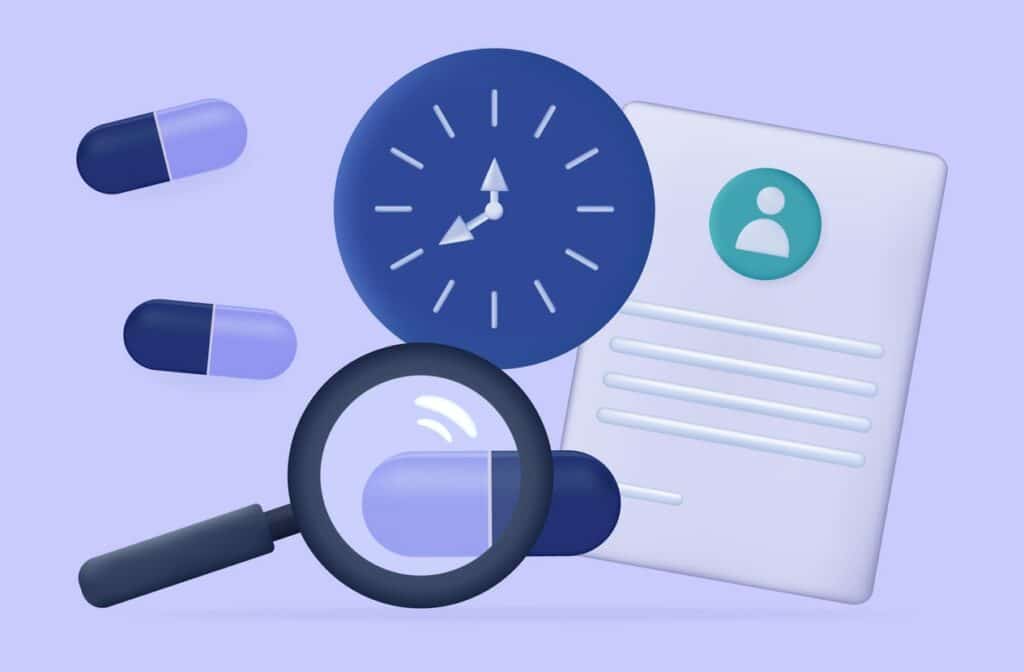
As we age, our brain shrinks, and our ability to process and remember information slowly decreases, though it is possible to slow or prevent this process, at least temporarily.
Certain vitamins, nutrients, and herbal extracts have been said to slow or prevent memory loss, though there is little evidence to support claims that they can boost your memory or reverse the mental effects of aging.
Most of the ingredients in supplements for memory have been proven to support mental health, cognitive function and memory, if not protect against age-related mental issues.
Additionally, many of the best brain vitamins for adults contain nootropic effects designed to boost your mental power whilst protecting against cognitive decline.
RELATED: Omega-3 Fatty Acids are believed to support brain health and slow age-related decline, and you can find our recommendations for the Best Fish Oil Supplements here.
Conclusion
Many of the ingredients in brain booster supplements can be found in common food sources, and while a balanced diet is one of the best ways to support your brain health, these supplements are a great way to get your recommended levels of certain nutrients.
Additionally, certain herbal extracts like turmeric and ginkgo biloba have antioxidant and nootropic effects that help keep your brain healthy and boost cognitive performance.
Whether you choose a multivitamin or herb-based supplement, the best brain vitamins for adults support brain health with nutrition and nootropic-based effects that are sure to help you think clearly, even if the results aren’t as dramatic as some ads would have you believe.
While there is no simple way to maintain your brain health and improve your memory, proper nutrition and regular exercise go a long way toward keeping you mentally healthy as time goes on.
